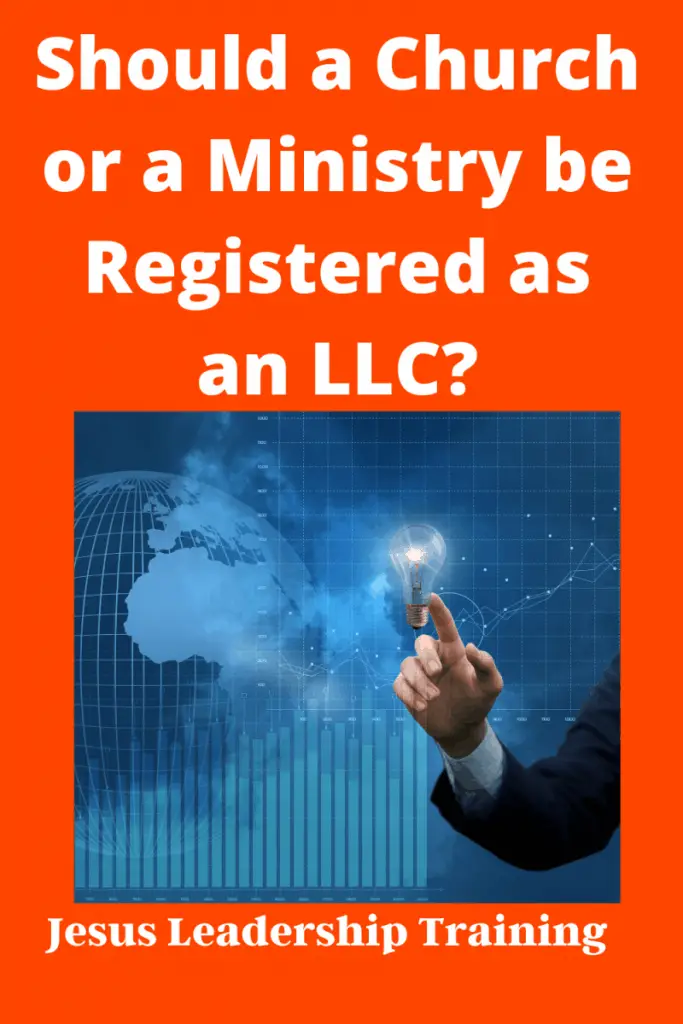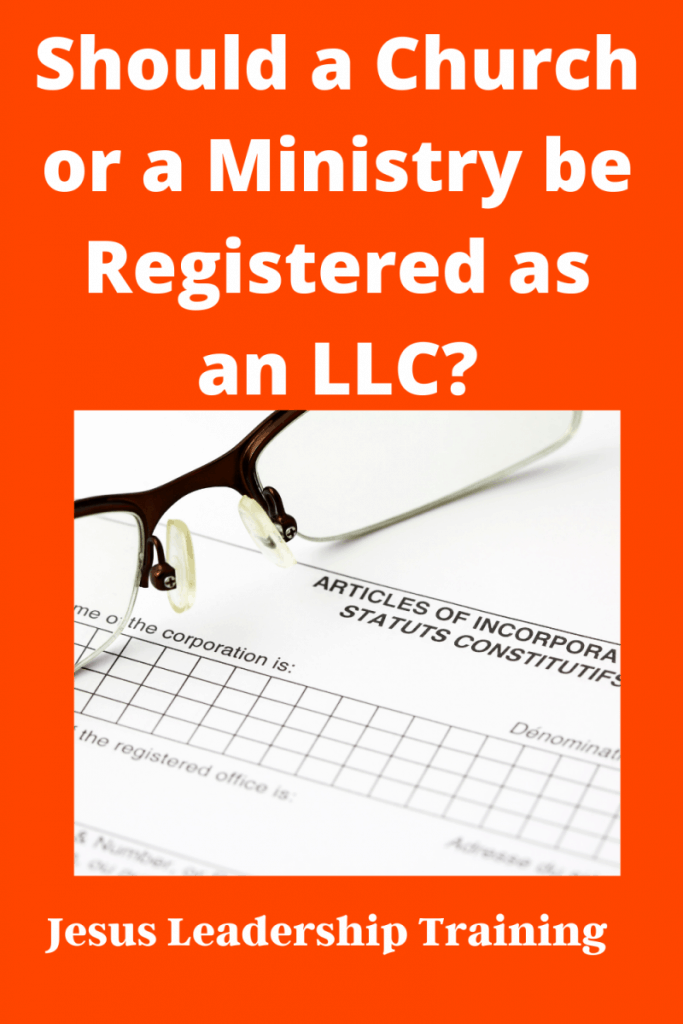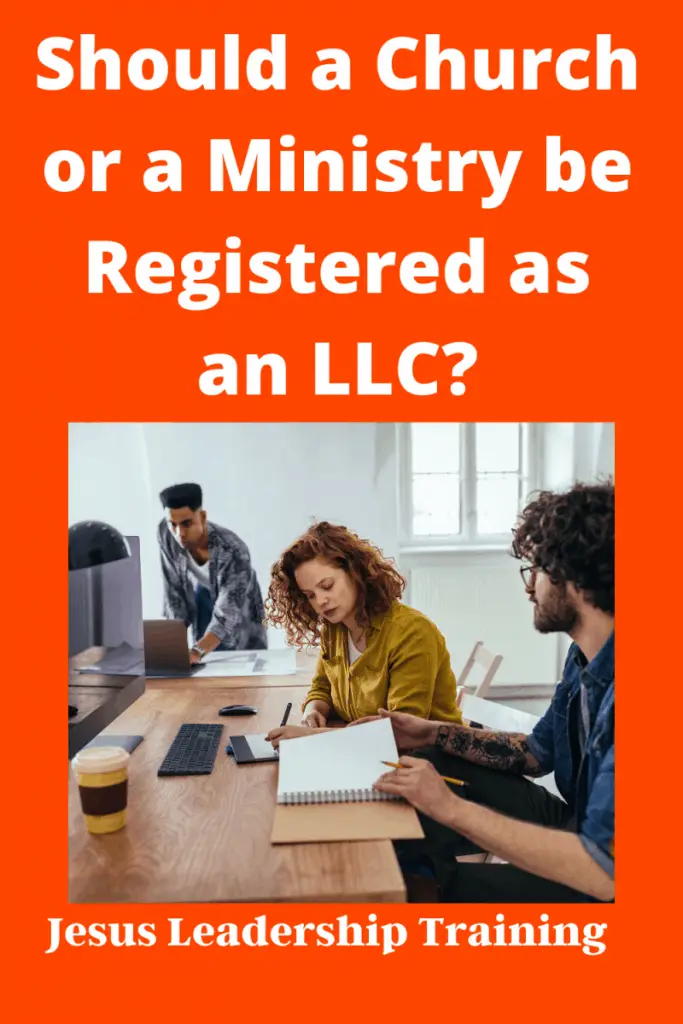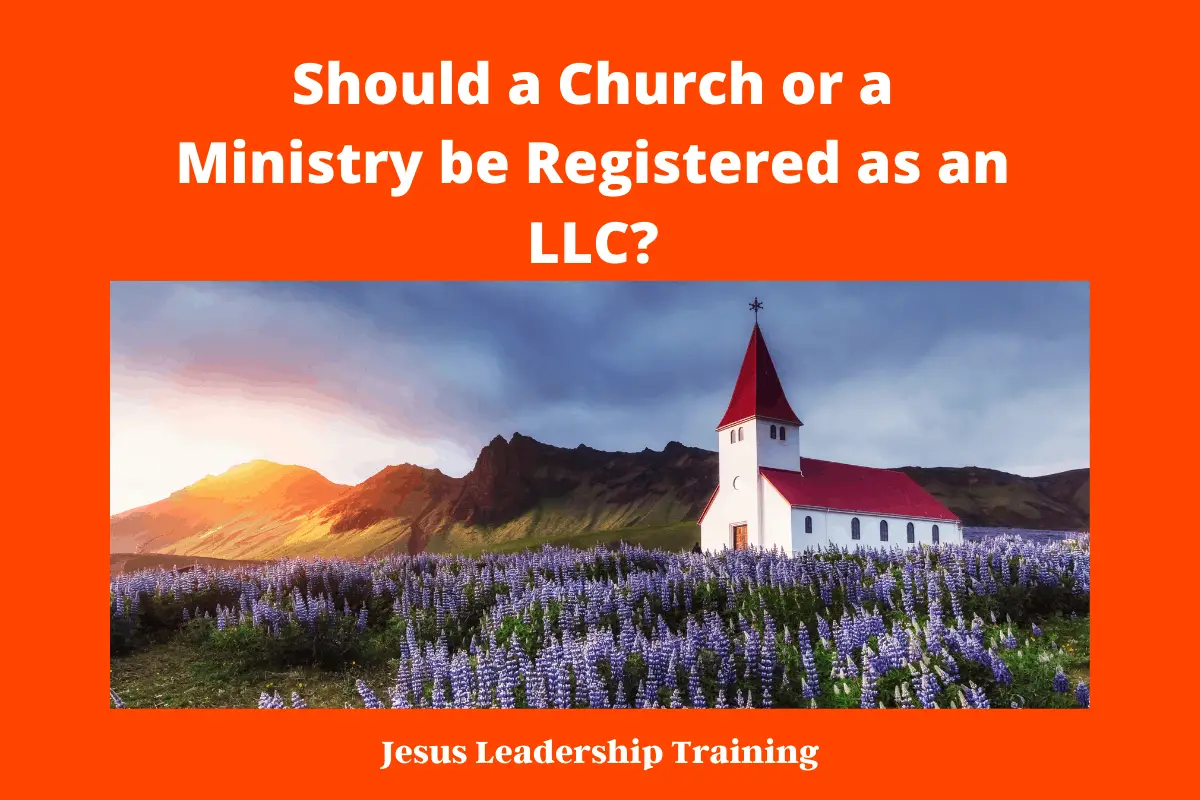Churches as they Grow, many choose to , whether a ministry be Registered as an LLC, 501 (3) (c). This allows them to continue growing in accordance with the Laws. This helps them in recordkeeping, and Tax advantages that help. It also gives them the ability to access more Non-Profit Organizations Benefits. It is not mandatory but is advantageous.
Many controversies surround a church or ministry incorporation. Incorporation is the legal process of forming a company or a corporate entity where the entity’s assets and liabilities are separated from those of its owners, founders, or members. Essentially, through incorporation, an organization gets the same legal rights and obligations as an individual.
Some people believe incorporation makes a church or ministry subject to the state as opposed to Christ. Others believe incorporating a church or ministry makes it lose its freedoms, including freedom of speech. Still, others think wrongly that an unincorporated church or ministry is not accountable to the federal or state government in any way.

For individuals seeking to start a church or ministry, these issues can complicate the incorporation decision. It can leave you confused as to whether you should incorporate your church or ministry, including registering it as a limited liability company (LLC).
What’s the Truth about Church or Ministry Incorporation?
Currently, there are more myths than facts concerning the issue of church or ministry incorporation. Mostly, it is because some people believe a church or ministry should not be subject to any form of government regulation. However, churches and religious ministries are community organizations and do not exist in a vacuum.
While state laws allow religious organizations to operate independently, churches and ministries are still accountable to federal and state governments concerning some issues. For instance, they are subject to tax laws, including withholding social security taxes for the church or ministry employees. Ministers must also pay taxes on their wages.
The church or ministry’s right to freely worship is constitutionally protected. The constitution effectively prohibits the government from interfering with the church or religious ministry’s right to free speech. That incorporation makes a church or ministry waive away its rights, including the right to free speech, is only a myth.
What is an LLC?
A limited liability company (LLC) is one of the business or corporate structures in America. Incorporation, as an LLC, separates the company assets and liabilities from its owners or directors. Consequently, owners or members of the board of an LLC church or ministry are not personally liable for its debt and liabilities.
Except for banks and insurance companies, any entity, including churches and religious ministries, can be incorporated as LLCs. However, is it advisable to register your church or ministry as an LLC?
Registering a Church or Ministry as an LLC
As a non-profit organization, a church or ministry must follow several steps when registering as an LLC. Mostly, the registration of churches and religious organizations is a state function that includes the submission of incorporation paperwork to the secretary of state. Filing a document commonly referred to as the articles of incorporation in many states marks the beginning of the process.
However, LLC regulations, including registration procedures, vary from state to state; hence you might need an expert to guide you on how to complete the process. Generally, registering as an LLC is an essential aspect of your organization’s legal setup; hence you should give it careful consideration.

Advantages of an LLC
Liability Protection for Members
Registering a church or ministry as an LLC acts as liability protection for its owners, directors, and members. In essence, an LLC church or ministry is a separate legal entity; hence members of the church cannot be held personally liable for its debts or other liabilities, including lawsuits.
For instance, church members are not personally liable for other members or church employees’ wrongful acts. For example, if the negligent act of a youth minister injures a child in the church and the child’s parents want to sue the church for damages, they can only sue the church as a corporation. The parents cannot sue the church’s founders, directors, or members personally. In contrast, all the members of an unincorporated church are individually liable in such a lawsuit meaning the child’s parent can sue them personally.
Separation of Ownership
As a separate legal entity, a church or ministry can own and sell real property on its own and independently enter into other business contracts. Generally, registering a church or ministry as an LLC simplifies property ownership, including transferring ownership to other entities.
Tax Benefits
Mostly, churches and religious ministries are non-profit organizations and are tax-exempt under section 501(c) 3. Their donors also receive tax deductions. However, these tax benefits are only available to incorporated churches or ministries, including those registered as LLCs. Essentially, LLCs do not pay income tax.
Disadvantages of an LLC
It is Costly
You will need to pay legal fees for the lawyer who will guide you through the complicated process of incorporating your church or ministry as an LLC. Mostly, legal services are expensive. There might also be other additional administrative costs. Average cost is from $40 – $500 in the United States
Government Requirements
As with other incorporated entities, a church registered as an LLC is subject to government filing or reporting requirements. Essentially, the organization has to notify the government about some of its changes, including change of directors or location.
Record Keeping
An LLC must have up to date records, including minutes of all its members’ or directors’ meetings, among other statutory records. Record keeping can be a tedious and costly process.

A 501 (c) (3) Nonprofit for a Church
In most jurisdictions, a ministry can operate as an LLC (Limited Liability Company) if it meets the requirements set forth by the state or country where it’s registered.
However, the ability for a religious ministry to operate as an LLC can vary depending on the laws and regulations governing both business entities and religious organizations in a particular jurisdiction.
In the United States, for example, religious organizations can choose to organize as various legal structures, including non-profit corporations, LLCs, or other forms depending on their specific needs and goals.
Forming as an LLC may provide certain benefits such as limited liability protection for its members and flexibility in management structure, but it also may have tax implications and other considerations that need to be carefully evaluated.
It’s essential for ministries considering forming as an LLC to consult with legal and financial professionals who can provide guidance tailored to their specific situation and ensure compliance with all relevant laws and regulations.
Additionally, the decision to operate as an LLC should align with the mission and values of the ministry.
Conclusion
If you are wondering whether to register a church or ministry as an LLC, you should consider learning about the truths and myths of incorporation. First, the country’s constitution protects religious organizations from government interference concerning the right to free speech. As a community organization, a church or a ministry cannot exist independently of the community, hence the need to be accountable to the government concerning some issues, including taxation.
Compared to the significant benefits of registering a church or ministry as an LLC, including liability protection for members, the drawbacks of registration or incorporation are minor. Despite the added administrative requirements, to reap the benefits of an LLC, you should consider registering your church or ministry as a limited liability company.



